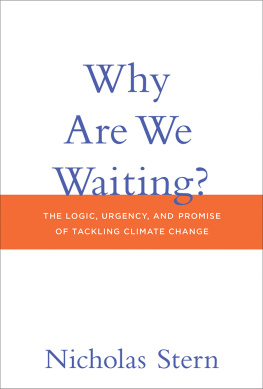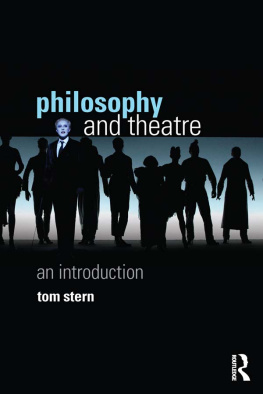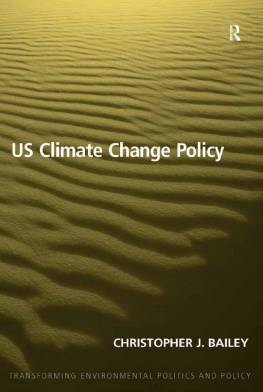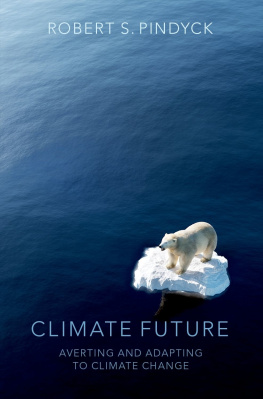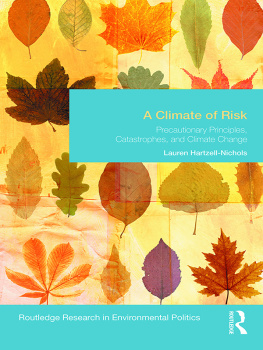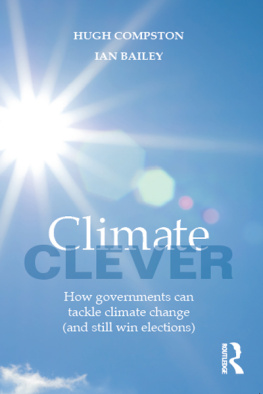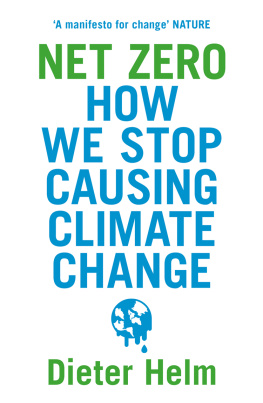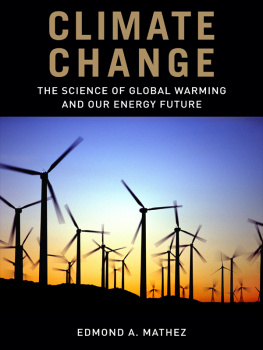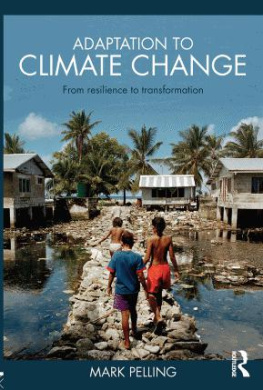Why Are We Waiting?
Lionel Robbins Lecture Series
Lessons from the Great Depression, 1989
Peter Temin
Exchange-Rate Instability, 1989
Paul R. Krugman
Poland's Jump to the Market Economy, 1993
Jeffrey Sachs
Economic Transformation the Mexican Way, 1993
Pedro Aspe
Russian Reform/International Money, 1995
Yegor Gaidar and Karl Otto Pohl
Determinants of Economic Growth: A Cross-Country Empirical Study, 1997
Robert J. Barro,
Central Banking in Theory and Practice, 1998
Alan S. Blinder
Global Trade and Conflicting National Interests, 2000
Ralph E. Gomory and William J. Baumol
Economics after the Crisis: Objectives and Means, 2012
Adair Turner
Why Are We Waiting? The Logic, Urgency, and Promise of Tackling Climate Change, 2014
Nicholas Stern
Why Are We Waiting?
The Logic, Urgency, and Promise of Tackling Climate Change
Nicholas Stern
The MIT Press
Cambridge, Massachusetts
London, England
2015 Nicholas Stern
All rights reserved. No part of this book may be reproduced in any form by any electronic or mechanical means (including photocopying, recording, or information storage and retrieval) without permission in writing from the publisher.
Library of Congress Cataloging-in-Publication Data
Stern, N. H. (Nicholas Herbert)
Why are we waiting? : the logic, urgency, and promise of tackling climate change / Nicholas Stern.
p. cm. (The Lionel Robbins lectures)
Includes bibliographical references and index.
ISBN 978-0-262-02918-6 (hardcover : alk. paper)
ISBN 978-0-262-32921-7 (retail e-book)
1. Climatic changes Economic aspects. 2. Climatic changes Government policy. 3. Environmental policy Economic aspects. I. Title.
QC903.S833 2015
363.738 74 dc23
2014039907
For our children and grandchildren
Foreword
In 2005 I cosigned a House of Lords report which argued that the British Treasury should make its own assessment of the economics of climate change. We little guessed what would follow. TheStern Review published in the following year became almost immediately the worlds most authoritative statement on the subject.
This was due to the extraordinary combination of talents which its author brought to the task. He is a world leader in public economicsthe discipline most relevant to the issue. He has a strong background in basic science. He is experienced in international economic policy. And he is a great persuader.
Since TheStern Review, public interest in climate change has waxed and waned, and many great nations have shown a shocking unwillingness to cooperate for the common good. But now there is new hope. In 2010 the nations agreed to limit the rise in world temperature to 2C, and more recently they have agreed to agree on how to do it.
December 2015 is the date when they will reach this agreement. So this book could not be more topical. It is based on the excellent Robbins Lectures which the author gave at the London School of Economics and Political Science in 2012but much extended. The book covers the basic science, the economics of mitigation and adaptation, and the politics of international action. Even experts will find much new analysis in this book. In fact I have no doubt that this volume, like its predecessor, will establish itself as the best state-of-the-art analysis of the greatest challenge facing humankind.
Richard Layard
July 2014
Preface
This book is based on the Lionel Robbins Lectures given at the London School of Economics and Political Science in February 2012. These are a high-profile set of annual lectures named in honor of the great economist, who was a professor at the School and a key figure in the creation of its economics department in the 1920s and 1930s. There is also a personal connection in that he was President of the British Academy (19621967) and I am one of his successors in that role (as it happens, the first economist and the first from the LSE since his time). There is thus no apology for a strong focus on the economics. That said, I have tried to make the books argument as accessible as possible to a wide audience. Moreover, I have tried to illustrate the connections between economics and other disciplines, particularly science and ethics. Further, policy to manage climate change and promote growth and reduce poverty necessarily involves the analysis of fundamental change, and this will inevitably require an examination of politics and political economy. And within economics we must be broad, from economic history to behavioral economics and game theory.
The work takes forward the analyses, approaches, and perspectives set out in The Stern Review, published online at the end of October 2006 and in book form in January 2007, and my April 2009 book A Blueprint for a Safer Planet (titled The Global Deal in the US). The first of these was focused on the argument that the costs and risks of inaction far exceed the costs and risks of action, and on analyzing policies and opportunities for mitigation and adaptation. Blueprint, published eight months before the major international climate change conference in Copenhagen in December 2009, concentrated on the agenda for an international agreement. A second purpose of that book was to make some of The Stern Review (it was 692 pages and long on detail) more accessible.
Much of great significance has happened in the world since Blueprint went to press in November 2008, just after Barack Obama was elected president of the United States of America and two months after the collapse of the Lehman Brothers investment bank. The length and depth of the global financial crisis has and will have a profound effect on the world economy and on short- and medium-term political priorities. And it turned out that President Obama was not able or willing to prioritize climate change during his first term in office.
November 2009, shortly before the Copenhagen gathering, saw the release of the emails from the Climatic Research Unit of the University of East Anglia (UEA), and some tried to draw the implication that parts of their data were doctored. Three UK inquiries and five US investigations all showed in different ways that this implication was false. There are a number of independent research results which provide similar data to those of the UEA. The science builds on serious enquiry and basic physics going back almost 200 years. Nevertheless, that episode, in the eyes of some of the public, saw the credibility of the science suffer damage. The onslaught changes form and emphasis from time to time but has not ceased. Just as the assault on the relation between smoking and illness continued for a long timethe vested interests are powerfulwe should not expect these attacks on the science to go away any time soon.
The December 2009 Copenhagen conference itselfmore formally, the 15th Conference of the Parties (COP 15) to the United Nations Framework Convention on Climate Change (UNFCCC)despite the presence of the major world leaders, yielded disappointing results. In the end, while it made some progress, it was chaotic and quarrelsome and represented a missed opportunity. Nevertheless the Copenhagen Accord thrown together at the last minute by leaders in Copenhagen became the basis for the agreement in Cancn one year later.
Notwithstanding setbacks, action has strengthened in emerging and developed countries. And in richer countries too there has been progress, even though the financial and economic crises have brought some wavering. There are important advances, for example, in China and in Indonesia, Brazil, Mexico, South Africa, and Ethiopia. In addition, progress on crucial technologies like renewable energy has moved much more strongly (and more quickly) than was anticipated in 20052006, when
Next page
